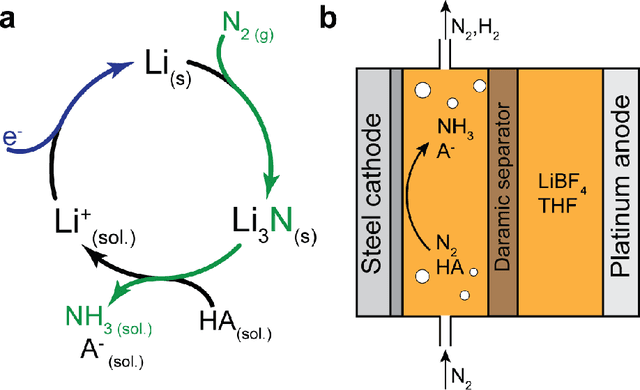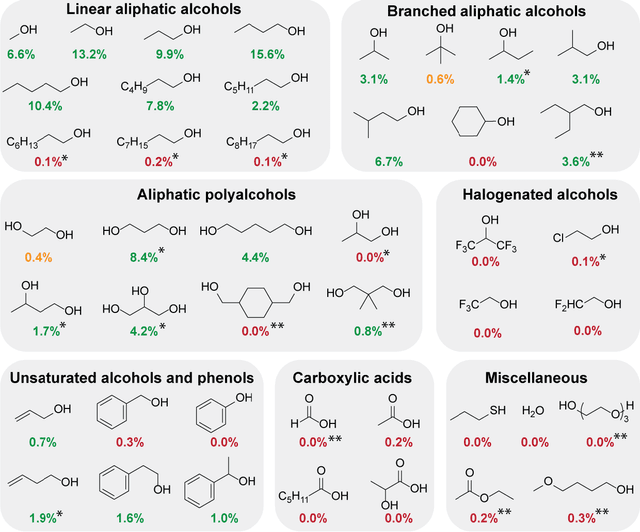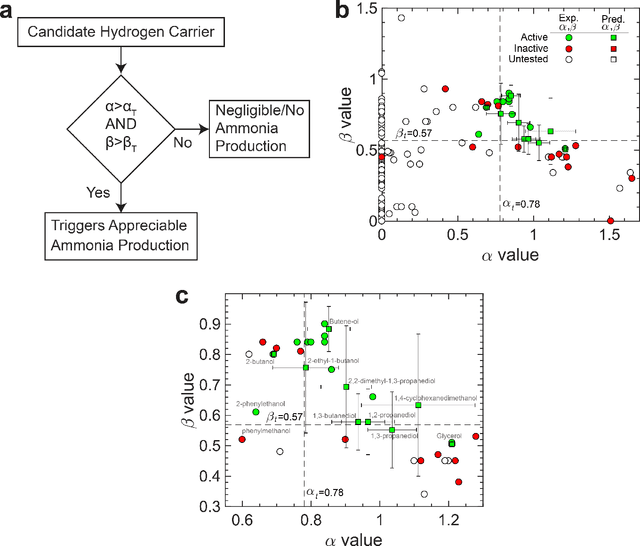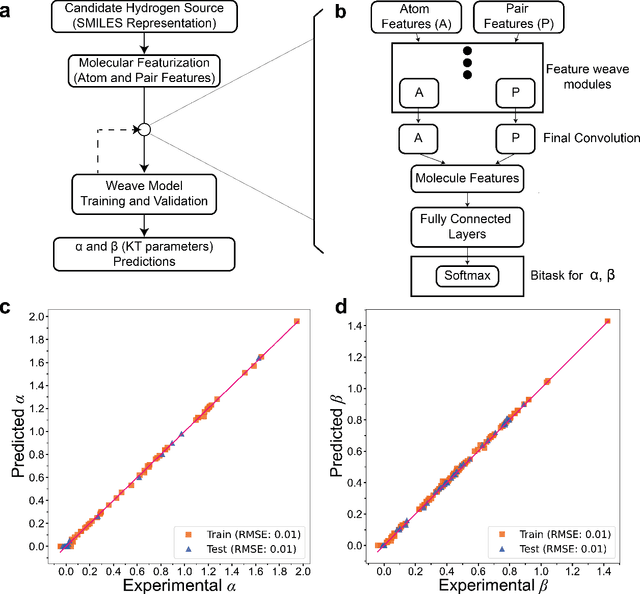Closed-Loop Design of Proton Donors for Lithium-Mediated Ammonia Synthesis with Interpretable Models and Molecular Machine Learning
Paper and Code
Aug 19, 2020



In this work, we experimentally determined the efficacy of several classes of proton donors for lithium-mediated electrochemical nitrogen reduction in a tetrahydrofuran-based electrolyte, an attractive alternative method for producing ammonia. We then built an interpretable data-driven classification model which identified solvatochromic Kamlet-Taft parameters as important for distinguishing between active and inactive proton donors. After curating a dataset for the Kamlet-Taft parameters, we trained a deep learning model to predict the Kamlet-Taft parameters. The combination of classification model and deep learning model provides a predictive mapping from a given proton donor to the ability to produce ammonia. We demonstrate that this combination of classification model with deep learning is superior to a purely mechanistic or data-driven approach in accuracy and experimental data efficiency.
 Add to Chrome
Add to Chrome Add to Firefox
Add to Firefox Add to Edge
Add to Edge